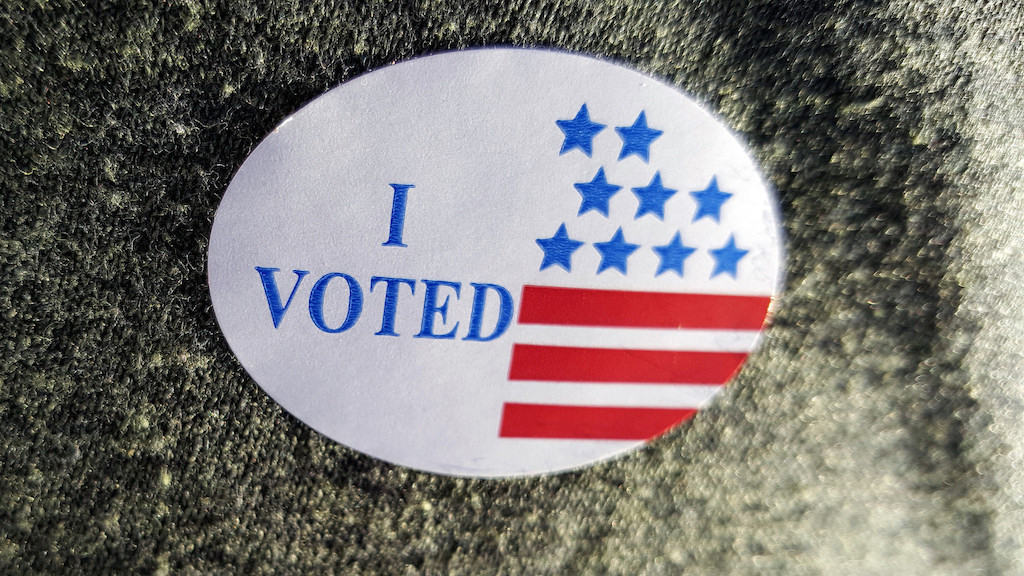The 2018 U.S. midterm elections mark a critical point in the era of President Donald Trump. The potential Democratic takeover of the House of Representatives, and potentially the Senate, has energized voters hoping for a “blue wave,” while Trump and Republican efforts to motivate their base have unleashed a torrent of white supremacist vitriol that is without precedent in recent years. In the past week alone, a fanatic Trump supporter stands accused of mailing 12 pipe bombs to people Trump frequently criticizes, including the Obamas and the Clintons, as well as three bombs to CNN; two African-Americans were murdered by a white supremacist outside Louisville, Kentucky, after he unsuccessfully tried to enter a predominantly African-American church; and 11 Jewish worshippers were massacred in a Pittsburgh synagogue by a white supremacist who railed on social media against Jews who help refugees, or “invaders,” as he and Trump call them.
Whether he owns it or not, these horrors are a culmination of an increasingly hate-filled campaign season, led by the president himself as he lashes out at women, immigrants and people of colour at rallies around the country. But there also is a surge of women and people of colour running for office. The question now is, who will come out to vote — and, critically, who will be denied the right to vote — in these midterm elections?
Republican efforts to purge voter rolls of likely Democratic voters have sparked a national movement to ensure the right to vote. In Florida, a remarkable citizen initiative is poised to succeed, which will restore the right to vote to over 1.4 million Floridians — people previously convicted of felonies. If it passes, Florida’s Amendment 4 will be the largest voter enfranchisement since women were granted the right to vote in 1920.
Across the United States, more than 6.1 million people with felony convictions are not allowed to vote. Florida, along with three other states — Iowa, Kentucky and Virginia — bars ex-felons from voting for life. In Florida, one in five African-Americans in Florida and 10 per cent of the state’s adult population can’t vote because of a criminal record.
“I’m a human being, I’m a citizen of this country, I’m a citizen of my community,” Desmond Meade recently told the Democracy Now! news hour at a forum on Amendment 4 in Melbourne, Florida. Meade is the president of the Florida Rights Restoration Coalition, and is leading the effort to pass Amendment 4. Meade doesn’t describe himself as an ex-felon; the term he uses is “returning citizen.”
Felony disenfranchisement is a key pillar of the Republican strategy to suppress voter turnout, which was laid out clearly in 1980 by the late conservative political activist Paul Weyrich, co-founder of The Heritage Foundation. “I don’t want everybody to vote,” Weyrich said at a Religious Right conference. “Elections are not won by a majority of people, they never have been from the beginning of our country and they are not now. As a matter of fact, our leverage in the elections quite candidly goes up as the voting populace goes down.”
Those sentiments were echoed just last week by Georgia’s Republican candidate for governor, Brian Kemp. He was secretly recorded at a fundraising event, expressing concern that the campaign of his Democratic opponent, Stacey Abrams, is pouring resources into a massive get-out-the-vote operation. Kemp said that is “something that continues to concern us, especially if everybody uses and exercises their right to vote.” Kemp is currently Georgia’s secretary of state, responsible for overseeing elections there. This year alone, Kemp withheld 53,000 registration forms, 70 per cent of them from African-Americans, leading many to demand he recuse himself. If Stacey Abrams wins, she will make history as the nation’s first African-American female governor.
In the remaining days before the midterms, Trump has deployed a new tactic, threatening to overturn birthright citizenship by executive order. This is the clause in the U.S. Constitution’s 14th Amendment that guarantees citizenship to those born on U.S. soil. While clearly unconstitutional, many take this as his continued assault on immigrants. In fact, the 14th Amendment was passed in reaction to the U.S. Supreme Court’s 1857 Dred Scott decision. Generally regarded as the most racist ruling in the high court’s history, the decision held that African-Americans could never be U.S. citizens.
The good news is, these odious attempts to suppress the vote — part of a dark history stretching from the times of slavery through the Jim Crow era to today — are being countered by organized mass movements. As Desmond Meade, the leading African-American activist fighting for Florida’s Amendment 4, says, “There is nothing that speaks more to citizenship than being able to vote.”
Amy Goodman is the host of Democracy Now!, a daily international TV/radio news hour airing on more than 1,300 stations. She is the co-author, with Denis Moynihan, of The Silenced Majority, a New York Times bestseller. This column originally appeared on Truthdig.
Photo: Wil C. Fry/Flickr
Help make rabble sustainable. Please consider supporting our work with a monthly donation. Support rabble.ca today for as little as $1 per month!




